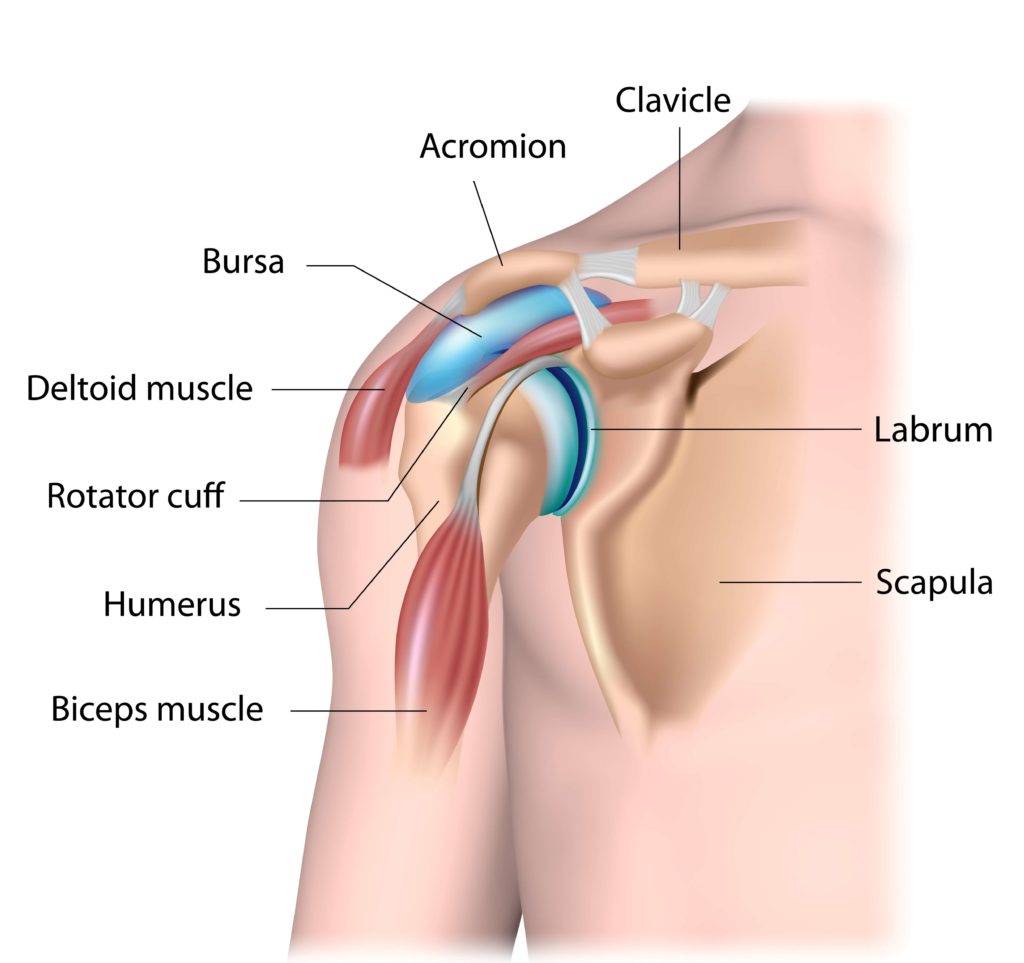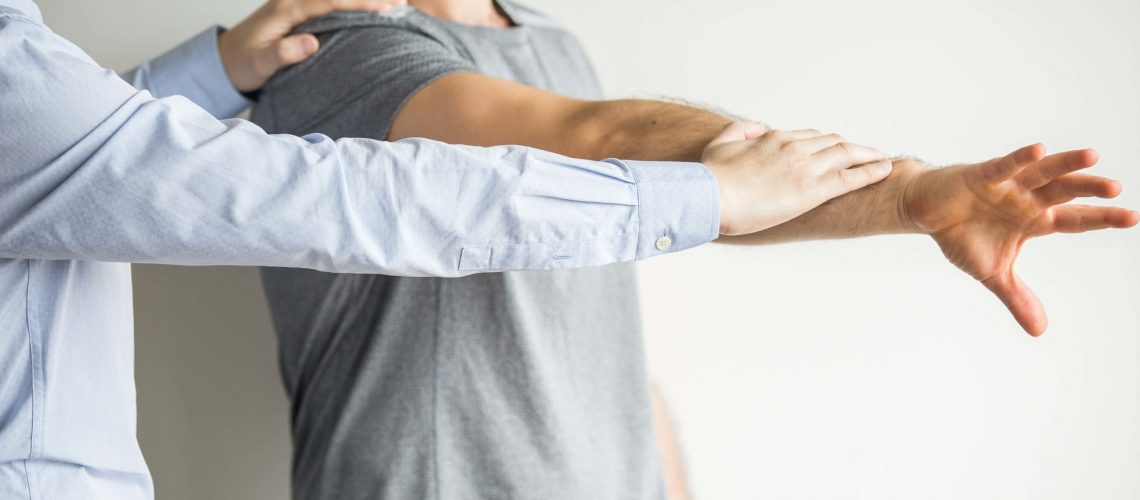Perhaps you’re worried about a sudden onset of symptoms in your shoulder, and you’re asking yourself some of these questions;
When I follow through on the golf course, why am I experiencing sharp pain in my shoulder joint?
Why is my shoulder catching and feeling stiff during my service motion when playing tennis?
I have a persistent dull ache in my shoulder and down my biceps at night, is this normal?
Will I be able to return to my sport if my injury requires surgery?
Injuries to the shoulder can be due to repeated overuse of the joint or through acute traumatic injuries such as fractures, acute rotator cuff tears or shoulder dislocations. Whichever way the damage has occurred, it can be excruciating and severely affect your level of activity and performance.
The shoulder joint is very mobile, with the ability to move the most of any joint in the body. To achieve this incredible movement, there is teamwork between many ligaments and muscles that work in unison and maintain stability.
Injuries can occur in any number of these structures, including tears of the rotator cuff tendons, biceps tendon, or the cartilage ring around the shoulder called the labrum. The picture below gives you an insight into where these sit in the shoulder.

The most common Sporting shoulder injuries and symptoms associated with these are:
- Rotator Cuff Tears
- These cause pain in the shoulder and weakness. It is often painful to elevate the arm.
- Labral tears – either at the top (SLAP tears) or associated with shoulder instability/
- These can cause pain in the shoulder and also down the biceps region. Sometimes you can feel like your shoulder is very unstable and will pop out if not careful.
- Shoulder impingement/bursitis
- This is usually assosicated with pain when reaching up overhead
- Shoulder dislocation
- This is when the shoulder joint pops out and can remain unstable
- Fractures of the shoulder or clavicle
You may be asking yourself; how do I know if my injury is just a strain/sprain or if it’s something more sinister?
This can be tricky to work out. If you know you have dislocated your shoulder or experienced an acute injury such as a fracture or you cannot move your shoulder at all, you should seek medical advice straight away. If the injury is something more subtle and you can still move the shoulder even though it is painful, then give it a week to settle.
If it doesn’t get any better, then be sure to make an appointment with your physiotherapist or local GP for investigation, and you may be referred to an orthopaedic surgeon for review.
Many people are unsure if they should visit a GP, physio, sports physician or an orthopaedic specialist.
My advice would be that when it comes to shoulder sporting injuries, a good physio or sports physician is key!
Lots of conditions in the shoulder respond well without the need for surgery.
Almost all shoulder injuries will need some imaging such as an X-Ray, MRI or CT to figure out what the cause of your problem is, and this can be where an orthopaedic surgeon will support you in helping to order appropriate investigations and reviewing the imaging to confirm if there is a tear within the shoulder. If there is a problem – be it rotator cuff or labrum, or something else – then your surgeon and physio will work closely together to figure out a way to get you back to your best performance.

